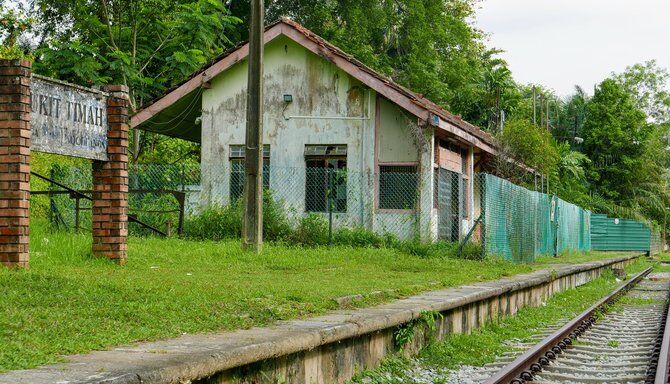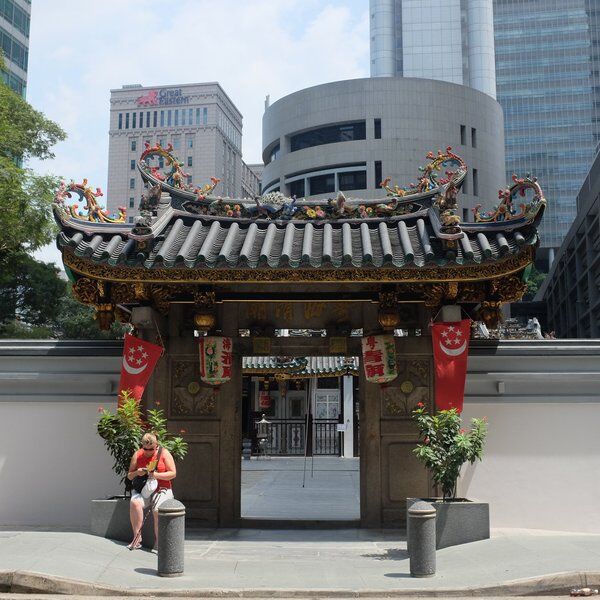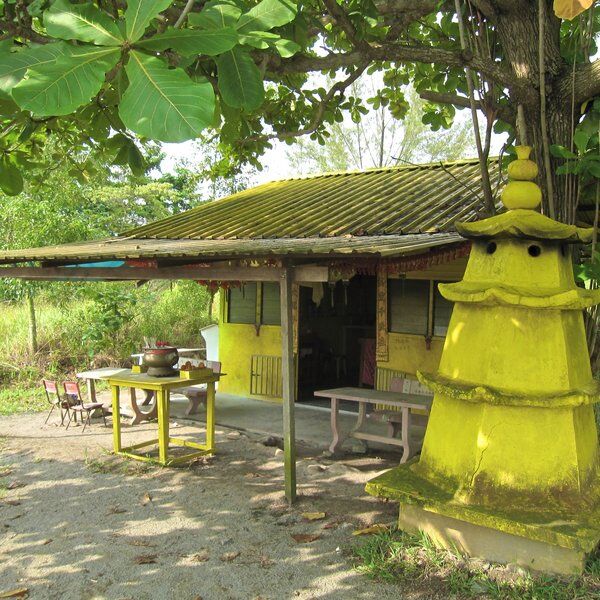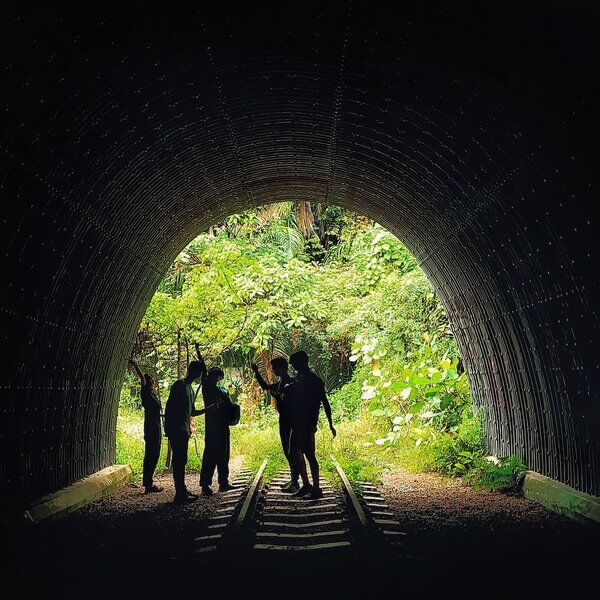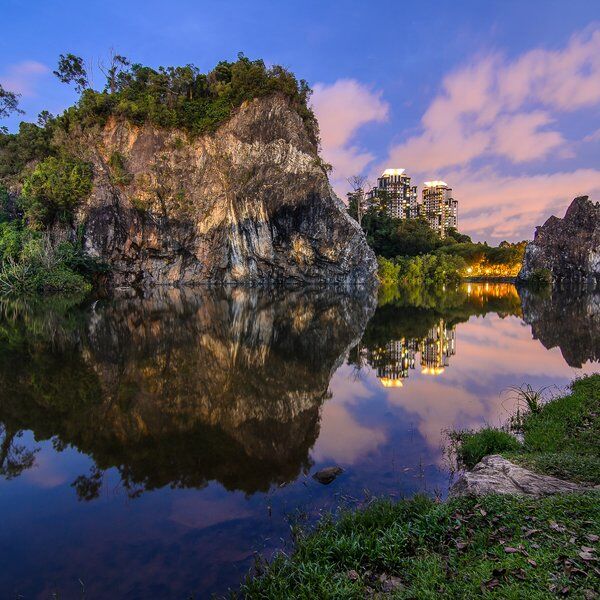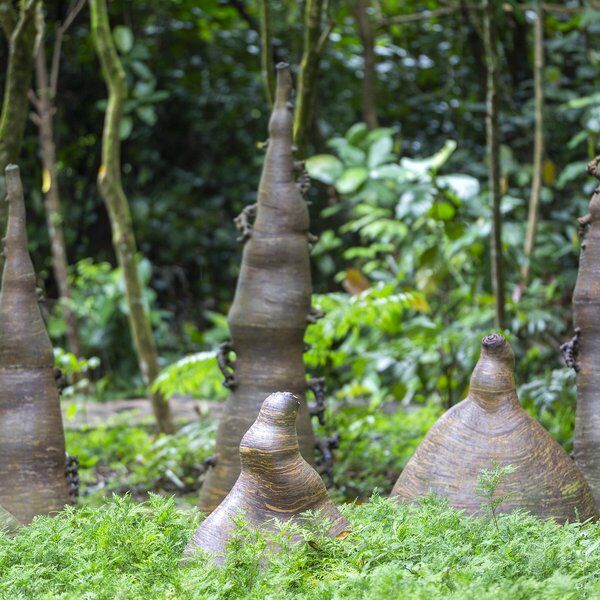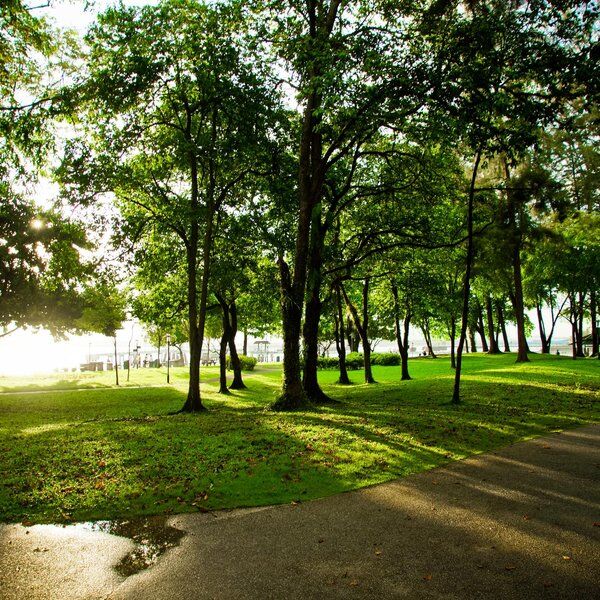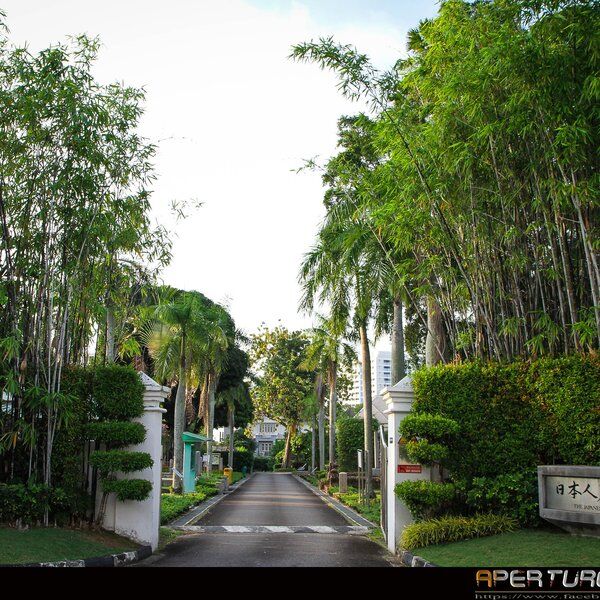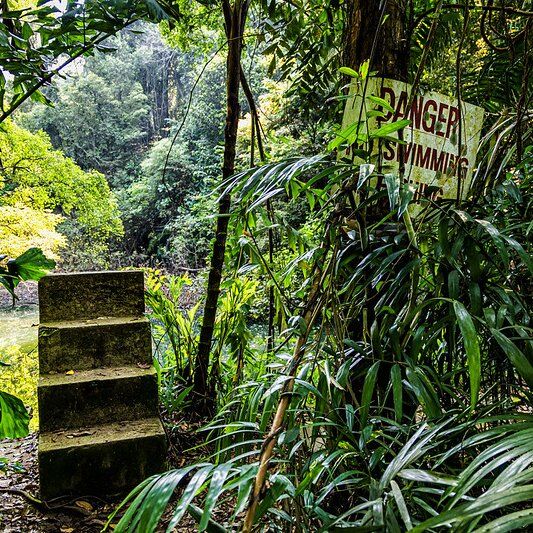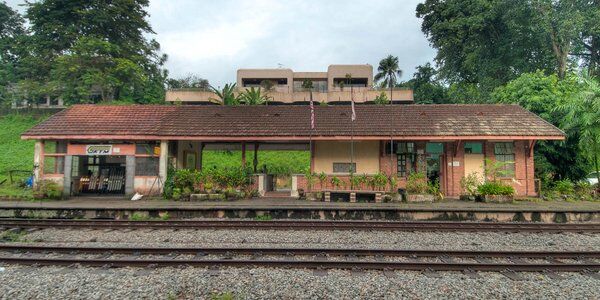
Rediscover Bukit Timah Railway Station
Positioned midway along the scenic 24km Rail Corridor in Singapore, the Bukit Timah Station, having maintained its original platform and tracks, is a testament to the country’s railway heritage. The station was closed in 2011 but emerged from a two-year restoration project in 2022, as a recreational building and heritage gallery.
Today visitors can explore this gallery to gain insight into its evolution and the different roles it performed since its inception in 1903. Some of these roles included operating as a crossing loop station and signalling control house in the late 1940s and as an important freight interchange for the Jurong Line that ran from 1965 until the early 1990s.
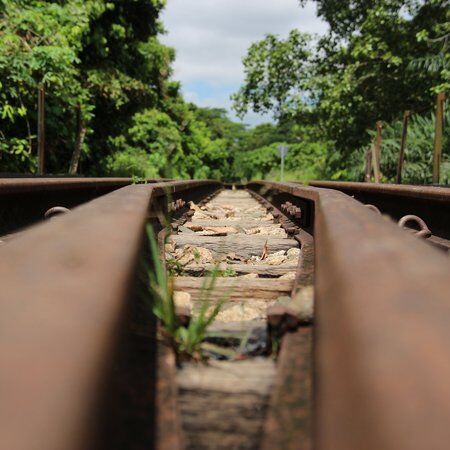
Beyond the historical exploration, the rejuvenated space offers more than just a walk down memory lane. The former staff quarters were turned into a cafe as part of the rebuild and scenic gardens provide an ideal backdrop for nature lovers, photography enthusiasts, and even a dating couple.
(The Railway Corridor connects visitors to other hidden gems in Singapore such as Clementi Forest.)
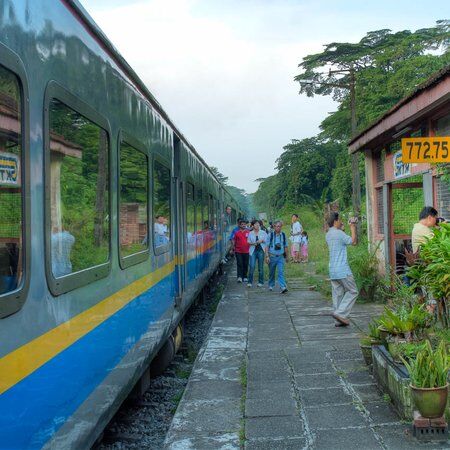
The History of Bukit Timah Railway Station
The original Bukit Timah Railway Station was a wooden structure at Pei Wah Avenue and formed part of the 1903 Keretapi Tanah Melayu (KTM) railway line. This line provided a vital link between Woodlands and the Malay Peninsula in the North and Singapore, fostering trade and connecting communities.
The wooden station was replaced in 1907 when a new station was built at Tank Road. The line extended to Pasir Panjang, leading the old station at River Valley Road to become a goods-only station within the expanded Tank Road complex.
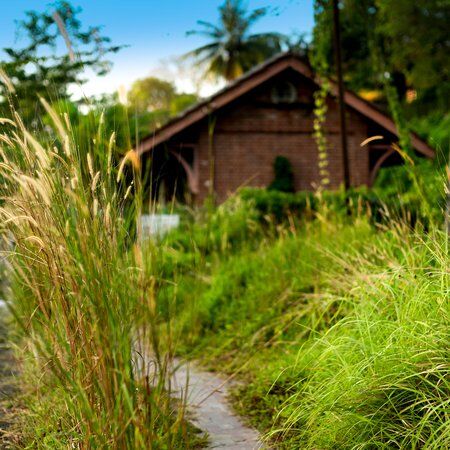
In 1932, an improved Bukit Timah Station was constructed on the new Deviation line from Bukit Batok to Tanjong Pagar. With the opening of the line to Tanjong Pagar, passenger traffic on the line to Tank Road ceased and after a brief use for freight clearing, the old Bukit Timah Station closed.
Passenger services continued from the new station until 1965, when Singapore was expelled from Malaysia, necessitating the establishment of customs and immigration facilities at Tanjong Pagar.
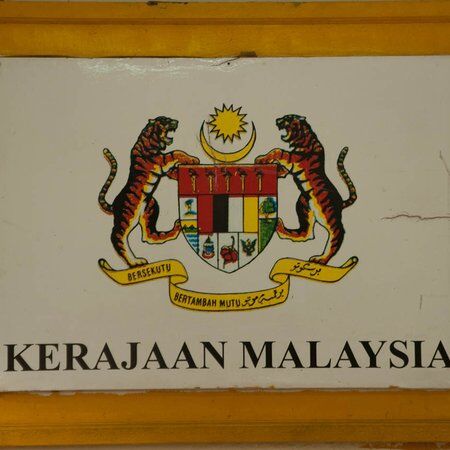
The End of an Era at Bukit Timah
On 1st July 2011, the cessation of KTM train services marked the end of an era for the Old Bukit Timah Railway Station and the stations buildings were given official conservation status.
Post-closure, the removal of the railway track between Tanjong Pagar and Woodlands took place, leaving only a few metres of track intact between the platforms at Bukit Timah.
Additionally, the iconic iron bridge over Bukit Timah Road, situated just north of the station, remained preserved. The rest of the track bed underwent transformation into a public park, becoming part of Singapore's Nature Society and URA's collaborative "Rail Corridor" project.
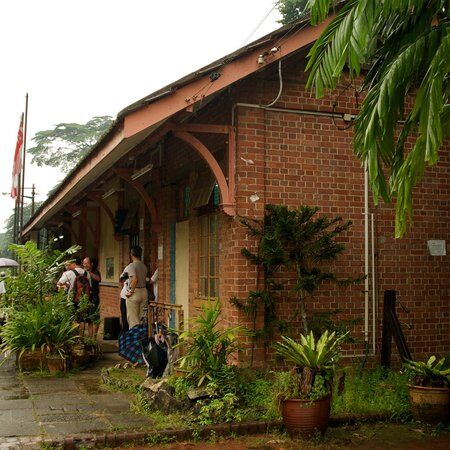
Singapore Land Authority reopened the Bukit Timah station buildings to the public on September 16, 2011 However, significant refurbishment and development plans were deferred until 2021.
After two years of meticulous restoration work, the Bukit Timah Railway Station officially reopened its doors to the public on July 1, 2022. Now part of a new 4.3-hectare community space around the midpoint of the Rail Corridor, the station represents Singapore's commitment to preserving its railway heritage.
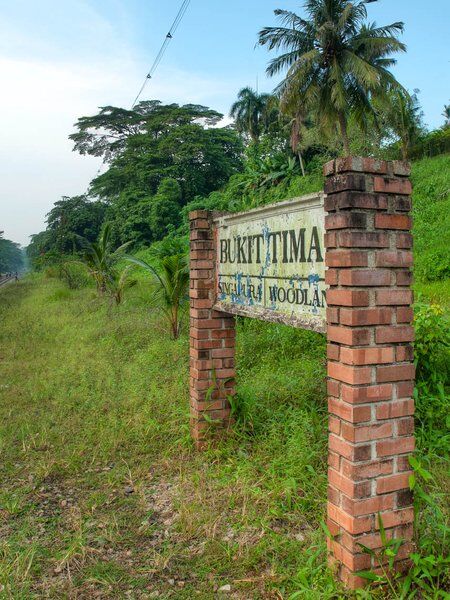
Visiting Bukit Timah Railway Station
"The good thing is that most of the buildings that you see today are exactly as they were, as they've always been. The brick walls are all original, the floors are original, and (even) down to the colours ... we took paint samples and we found the exact same heritage colours that the building was in the beginning of its life.”
In a distinctive colonial-style, complete with red roof tiles and wooden accents, Bukit Timah Railway Station reflects the architectural charm of traditional small-town stations.
At the station visitors can see classic train station paraphernalia such as station signs, token poles, and replicas of the railway station wagons that once operated on the tracks.
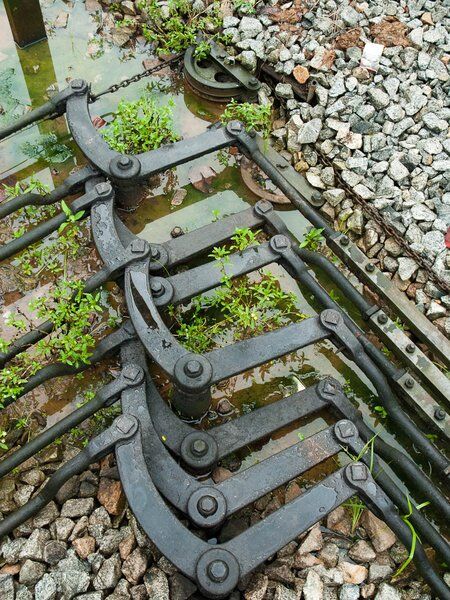
Inside, there are switching levers, a ticketing booth, and a replica of the signals diagram in the Signals Room, which was once a place where Station Master controlled rail traffic. The Signal Room would have contained 36 levers, with differing colour-coded functions. Today, only 6 levers remain.
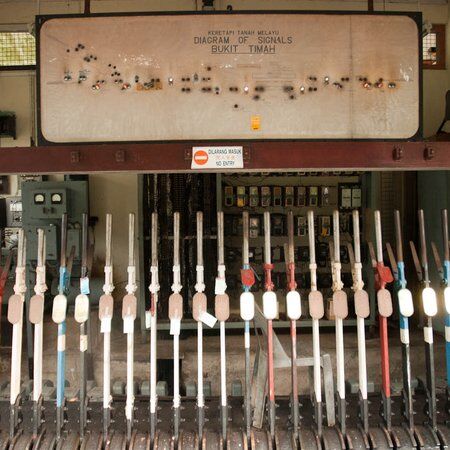
There are also 4 other distinctive features to keep an eye out for when you visit the old Bukit Timah Station. These include:
- The Yellow Service Wagons on the Tracks: These service wagons are replicas to give the illusion of Bukit Timah as it would have been.
- The Railway Staff Quarters: During recent renovations, the staff quarters of Bukit Timah Railway Station, was repurposed and turned into a café named '1932 STORY’.
- The Seating Terrace: The two-tiered seating terrace, crafted with sustainability in mind, has armrests made from repurposed railway track segments.
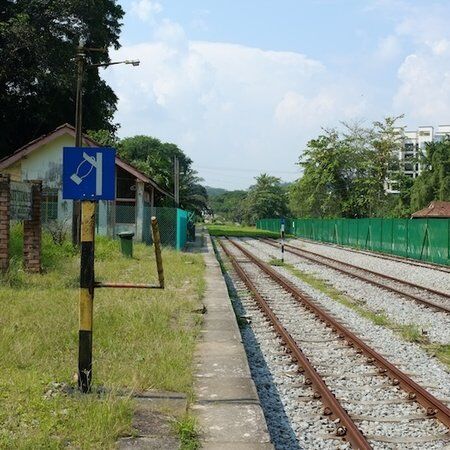
The Gardens at Bukit Timah Railway Station
Behind the railway staff quarters at Bukit Timah Railway Station lies the Herb and Spice Garden, once maintained by those living in the staff quarters. According to URA and NParks, this garden boasts treasures like curry leaves, common basil, laksa leaves, and Siamese ginger.
Facing the railway staff quarters, the Kampong Garden has ornamental shrubs and flowers typical of 1960s Singapore. These include the pinwheel flower – an evergreen round shrub with glossy dark green leaves and fragrant, white flowers shaped like pinwheels, enticing butterflies.
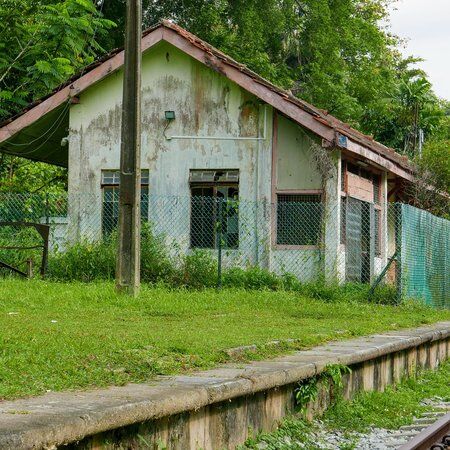
Explore Singapore with CityDays
The fascinating city of Singapore awaits - and there’s no better time to explore it than right now!
CityDays create fun, interesting and challenging trails around the world to help you immerse yourself in a city’s culture, history and quirks. We’ll show you hidden gems, share some fascinating facts and even offer you the chance to win prizes for your brilliance.
We also provide Singapore team building activities to help your colleagues have a seamless day of bonding, learning and fun!
Want to find out more?
Check out all our available activities in Singapore here and embark on an adventure you’ll never forget: CityDays awaits!
